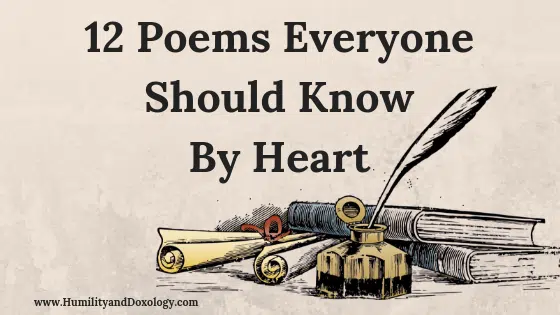G. K. Chesterton has been one of my favorite authors since I was a teenager. Orthodoxy is in my top 10 books of all time, and is one of the non-fiction books I’ve re-read most frequently. So when I learned that my friend Holly was writing a book with publisher Blue Sky Daisies on the life of G.K. Chesterton, you can imagine my excitement!
Holly has a special guest post for us today. She tells us a few of the more, well, less-flattering parts of Chesterton’s life. But she does more than that. She asks us to think through the bigger question of what to do when our literary heroes are flawed. What can we learn about ourselves and the grace of God when we more deeply understand the full picture of our heroes’ lives? Read Holly’s post to find out!

When Your Literary Heroes Are Flawed
by Holly Geiger Lee
For better or for worse, we cannot help that we are drawn to the people found on the pages of the books we read. I bet if you are like me, a tired homeschool mom, you acknowledge the value in reading fiction or nonfiction biography. I like not having to make decisions constantly, but let’s face it: decision fatigue is going to happen from time to time.
The value in reading fiction or nonfiction biography is that I am allowed to observe somebody else’s decision-making. Therefore, the fiction novel or nonfiction biography helps me to process someone else’s story, which means that the conclusion is not based on any decision I have made as the reader. I am just along for the ride with the characters!
Emotional Connection
My own experience with reading a novel can best be described as emotional. On this emotional roller-coaster, I ride alongside my favorite character as she solves a mystery or becomes a better version of herself. I cannot help but feel a closeness to a character who helps me see something in myself that I had not previously uncovered. It can be cathartic to go through another character’s drama, experiencing their emotions, and finding some kind of resolution. Just like the end of a roller coaster ride, I feel like I could hop back on and ride again.
Even a great expanse of time cannot separate my emotions from the characters I read about. For example, even though the Greek myths are ancient by today’s standards, I cannot help but connect to their predictable story lines and moral paradigms.
I can feel connected to the successes as well as the failures of characters. The tragic hero is appealing to so many. I feel sad for Oedipus when he kills his father and marries his mother. How could I not feel sadness and a bit of fear from reading about one’s moral downfall, albeit far fetched?
Another example is found in the Biblical parable of the rich fool from the book of Luke. The rich fool who has everything, suddenly, in his humanity, makes a grave mistake. He contributes to his own downfall, and I cannot help but feel a pang of sadness and think of a message of warning.
From my reading experiences, I can conclude that humans are designed to connect with others. We connect to others through story, no matter how modern or ancient the story may be. Both roller coasters and stories are designed to deliver an experience of excitement, climax, and resolution. However, unlike the roller coaster, the story takes us on a ride with someone: the character. Many times, the character is a hero.
I believe we look for heroes in stories. This does not mean I look for perfect people in the stories I read. My hero can take the form of a flawed person who overcomes great adversity. Or, like the tragic hero, my hero can look like a relatable person of stature who falls to a depth of moral hopelessness.
There are unconventional points of connection, too. Even the anti-hero, a more unfamiliar character example, makes me so frustrated because I search for ways to identify with him or her. I desire the typical heroic traits of nobility, bravery, and honesty, but I am left wanting with the anti-hero. Nonetheless, I think that on my worst days, I am certainly the anti-hero. Apart from Christ, I would be the anti-hero every day.
If I am not an anti-hero every day, am I even a hero? I think we must start with the definition of “hero” in order to answer this question.

Defining Hero
A hero, as translated from Greek, means “defender” or “protector”. I am certainly a sucker for finding a strong defender or protector in my stories. He or she might look like a defender of the truth or a protector of the vulnerable. Even in my modern, material context, I see many little-h heroes as humans embodying God-given qualities that point to the true and better Hero (Jesus Christ). There are no demi-gods, but there is certainly the indwelling Holy Spirit to help Christians reflect heroism.
More times than not, I seem to put my flawed heroes on a pedestal. Intellectually, I know that a mere mortal is not going to provide true and lasting heroic goodness. We are all flawed. Nonetheless, I certainly want him or her to have the hope of providing the eternal heroic goodness that only Jesus can provide. We are all searching for this.
The flawed hero has a purpose in story. It brings the “ordinary” reader (like me) to a conclusion that perhaps I could likewise be a hero like him or her. I’m flawed, so maybe there’s some hope for me, too. Have you ever felt hope after reading about an “ordinary” hero’s courage, self-control, leadership, or kindness?

G.K. Chesterton, Ordinary Hero
G.K. Chesterton (1874-1926) was one of these “ordinary” heroes to me. He wrote essays, novels, biography, literary criticism, social commentary, poetry, and more!
I am not a literary expert, but it doesn’t take much reading for me to gather that G.K. Chesterton was a man of ideas. His philosophical ponderings and paradoxical proclamations make my heart sing and my brain tingle. Okay, maybe I’m making too much of him, but I think you know what I mean!
I am astonished by the sheer number of works he wrote in his lifetime. He wrote about 80 books, several hundred poems, 200 short stories, 4,000 essays, and several plays. Writing is thinking, and vice-versa. How about that number of written works for a thinking person?
In many respects, G.K. Chesterton was admirable. He cared deeply about the truth, loved children (though he had none of his own), spoke out against exploitation of others, fancied the things of “Little England”, and was a devoted husband. He was playful, jolly, and acknowledged virtue in his opponents. His quick wit and cheerful manner made him winsome and popular among many.
What’s not to like about G.K. Chesterton? We plaster his quotes onto mugs, frame his paradoxes and hang them on the office wall, and make a point to inform others about his influence on another literary great, C.S. Lewis.
Even though there are probably hundreds of positive things we could list about G.K. Chesterton, he was a flawed man. He was a man of faith, nonetheless. His profession of his Christianity means that he had the Holy Spirit living inside of him. So, while I describe how I personally went through a period of slight dislike and annoyance after reading more about his personality and quirky habits, I cannot say that I am any different, as a broken Christian in need of grace.

When G.K. Chesterton Annoyed Me
If you read enough on G.K. Chesterton, you will eventually find out that he had some annoying habits. To preface these, I am sure there are plenty of annoying habits my husband and kids put up with as they live alongside me. (Actually, I know a few of them, so that is settled.)
In the early years of marriage, one might assume the husband and wife are trying to make a good impression on each other. The Chestertons started their marriage in 1901 living in London, until they moved out to the country in 1909. Those first years in London, the couple lived in apartments. This meant that neighbors could hear through the walls the bellowing voice of G.K. Chesterton. Often, he alerted his wife that he needed her help in getting dressed. He summoned her with a frantic “FRANCES!!!”. This is not such a big deal after I think about the matter, but it initially struck me as annoying. My impression of my hero started to falter.
Another thing that still makes me cringe is an account given by a young cousin of G.K.’s named Lilian Chesterton. She stayed with the Chestertons from June until November 1913. Per Lilian’s recollection, Frances was trying to help G.K. get one of his articles finished, as it was to be published in the newspaper. It was lunchtime, and the article had to go out in time for the train.
G.K. was involved in a lengthy discussion with his guest. He had not remembered the article, or at least was not bothering to work on it. Frances gently reminded G.K. that he needed to finish the article. He gently responded that there would be time after lunch. He continued to talk. A maid came into the room to deliver the news that the messenger boy had arrived. Gilbert turned to his right and said, “Have him wait.” Then, he continued his lengthy conversation.
Frances was most likely trying to hold onto every ounce of self-control by this point. Looking worried, she replied, “I shall have to ask them to hold the train, if you do not go at once.”
“Yes, do that,” he replied brightly, as if having a happy thought. Then, he returned to his lecture. “As I was saying…”
Nobody was amused, but Lilian recounted her own struggle to hold back laughter because the situation was so ridiculous. Finally, Frances returned. She brought the article and a pencil and placed them firmly in front of G.K. After many apologies to his guests for interrupting the conversation, he commenced his work. He finished his article. In Frances’ hand was the addressed envelope.
She folded the article quickly, and sealed the envelope, in silence. She handed the envelope to the waiting maid, who hurried to the hall, the boy sprang onto his bicycle and raced to the station. In a few minutes the whistle blew and everyone sighed with relief. This was the momentary peace Frances experienced, until it would happen all over again!
I admit, after reading Lilian Chesterton’s account, I was no big fan of G.K.’s for a day or two. I thought, if my husband ever acted so flippantly and aloof, we would have some major problems!

Motives Matter
G.K. seemed flighty, sometimes aloof, and sometimes childish, at least to me. That didn’t stop God from using him to bring people like C.S. Lewis to Christ. These shortcomings were a part of his flawed nature. Proverbs 16:2 says, “All the ways of a person are clean in his own sight, but the Lord examines the motives.” I am pretty sure if G.K. had the Holy Spirit living inside of him, certain sins became less and less as he became more and more like Christ.
If G.K. Chesterton was predisposed to being scatter-brained, God gave him redeeming qualities, too. He wasn’t called “Prince of Paradox” for no good reason! The way he thought and pontificated led to his great work. Many people who knew the Chestertons attested to G.K.’s humble sense of humor, as well as his jolly demeanor.
Furthermore, God in his providence provided a good wife in Frances. She was the keeper of the finances (for good reason), schedule-maker, and encourager. She made sure G.K. had money before he left the house, was dressed properly, fed, and could keep a free mind for writing. Some of us need a lot of grace. Correction: all of us need a lot of grace!
Grace is Far-Reaching
We all need grace and have received grace from a holy and loving God. Thus, we have choices to make. As a homeschool mom, I can choose to get very irritated when a child’s sin gets in the way of my own plans. Yes, sin is serious. We are called to see the sin in our kids as opportunities to administer God’s grace.
However, do I examine my own heart before I look at my kids’ sin? Once again, “All the ways of a person are clean in his own sight, but the Lord examines the motives.” In examining my own motives first, I might be more inclined to administer grace and forgiveness to my children, who so desperately need to hear the gospel as much as I do.
What does this have to do with heroes? I think pointing to the truer, better Hero puts the literary heroes in their proper places. It’s very comforting and it is true. Seeing people as they really are and loving them anyway is something I want to model to my children. We can do this as we talk about literary heroes with each other.
Grace can be found in all facets of our lives. That’s just how far-reaching the grace of Christ is.

Holly Lee is a homeschool teacher and wife, as well as a mother to three children. Holly grew up teaching her stuffed animals and later became a public elementary school teacher. After she ended her teaching career in the public schools, she earned a graduate degree in counseling. Now, Holly has combined her love of teaching and forming relationships with real, historical figures as she reads books to her own children. When she is not reading to her children, Holly enjoys going outdoors in her beautiful state of North Carolina. Her relationship with Jesus Christ is paramount to any other pursuit in life. It is a driving force behind her life’s work of helping her home to flourish. You can find Holly’s writing on her blog, My Little Brick Schoolhouse. She is also on Pinterest, Facebook, and Instagram as My Little Brick Schoolhouse and on Etsy as Brick Schoolhouse. Holly is writing a book with publisher Blue Sky Daisies on the life of G.K. Chesterton.






